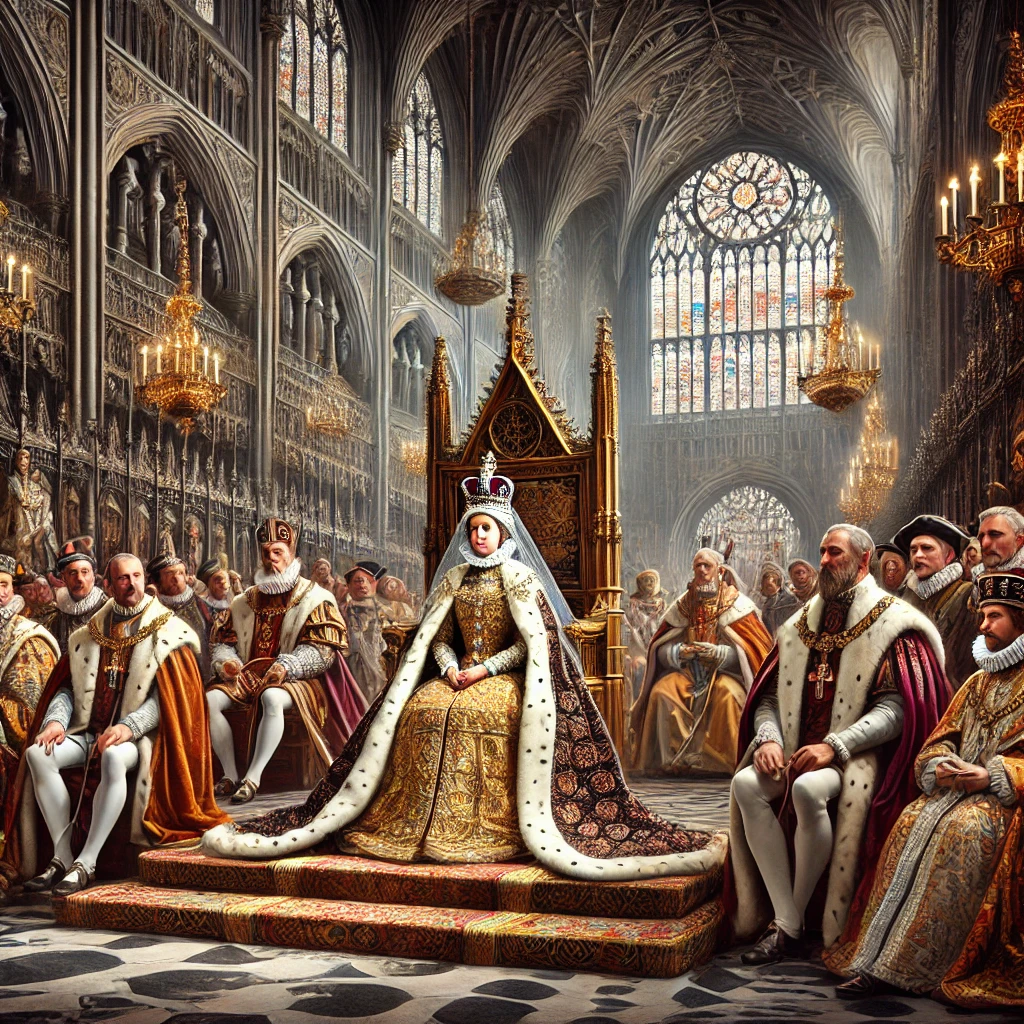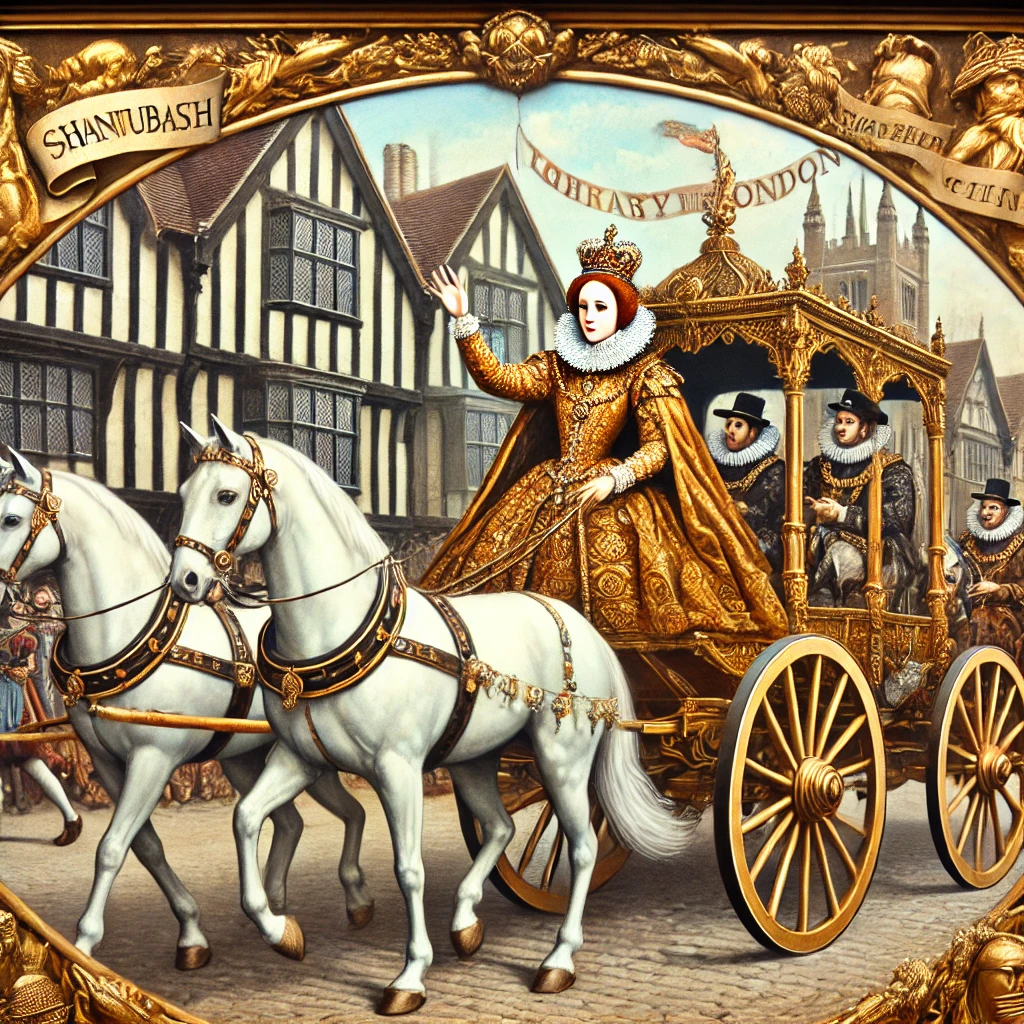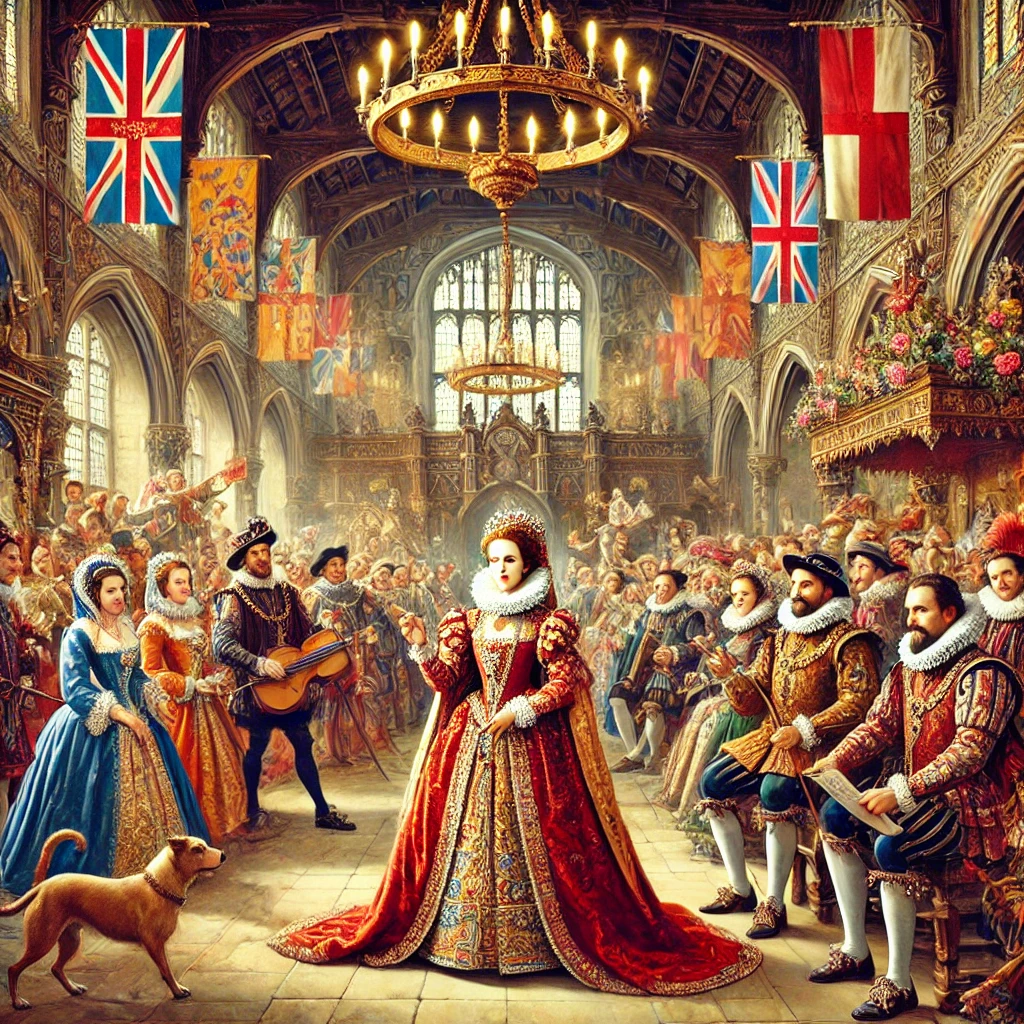On January 15th, 1559, Elizabeth I was crowned Queen of England, marking the beginning of a reign that would become known as the Elizabethan Era. This historic day signified not only the start of Elizabeth’s 44-year rule but also the ushering in of a golden age for England. Her coronation was a turning point in English history, laying the foundation for cultural flourishing, political stability, and the expansion of England’s influence on the global stage.

The Crowning of a Monarch
Elizabeth’s ascension to the throne followed a period of significant turbulence. As the daughter of Henry VIII and Anne Boleyn, her claim to the throne had been contested, and she endured years of uncertainty during the reigns of her half-siblings, Edward VI and Mary I. When Mary passed away, Elizabeth inherited a deeply divided kingdom, fractured by religious conflict and economic instability.
The coronation itself was a grand affair designed to unite the nation and legitimize Elizabeth’s rule. Held at Westminster Abbey, the ceremony blended both Catholic and Protestant traditions to signal Elizabeth’s intent to be a monarch for all her people. The event was attended by nobles, diplomats, and commoners alike, all eager to witness the beginning of what many hoped would be a new era of peace and prosperity.
The Significance of the Elizabethan Era

Elizabeth I’s reign is remembered as one of the most transformative periods in English history. Her leadership brought stability to a kingdom previously plagued by religious and political strife. One of her earliest acts as queen was the establishment of the Elizabethan Religious Settlement, which sought to balance Catholic and Protestant practices, creating a framework for religious tolerance that would endure for decades.
Culturally, the Elizabethan Era is celebrated for its unparalleled achievements in the arts. It was during Elizabeth’s reign that figures like William Shakespeare, Christopher Marlowe, and Edmund Spenser flourished, producing works that remain central to English literature. The period also saw advances in exploration, with adventurers like Sir Francis Drake and Sir Walter Raleigh expanding England’s horizons and establishing its presence as a maritime power.
The Legacy of Elizabeth I
Elizabeth’s impact extends far beyond her lifetime. Her approach to governance, marked by pragmatism and diplomacy, set a standard for future monarchs. She skillfully navigated challenges from foreign powers, most notably defeating the Spanish Armada in 1588, which secured England’s status as a dominant naval force.
The Elizabethan Era laid the groundwork for modern England. The cultural and intellectual achievements of the period inspired future generations, while the emphasis on exploration paved the way for the British Empire. Elizabeth’s example as a strong, independent leader has continued to resonate, making her one of the most iconic figures in history.
A Reign That Shaped History

Elizabeth I’s coronation was more than just a ceremonial event; it was the beginning of a legacy that would define an era and influence the course of history. Her ability to unite a divided nation, foster a cultural renaissance, and assert England’s place in the world ensured that her reign would be remembered as one of the most significant in history. To this day, Elizabeth I remains a symbol of resilience, intelligence, and leadership, embodying the potential of visionary governance to transform a nation.
